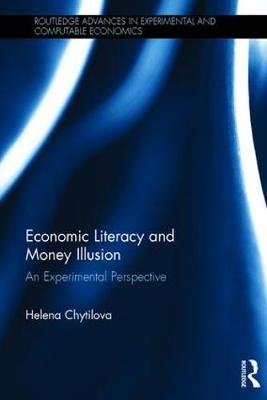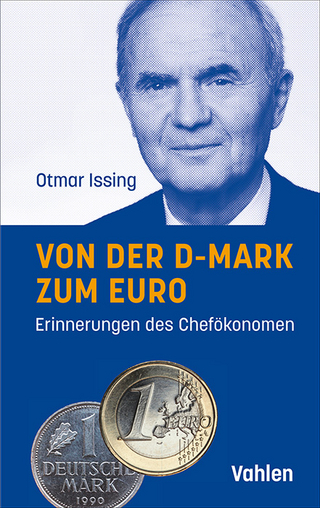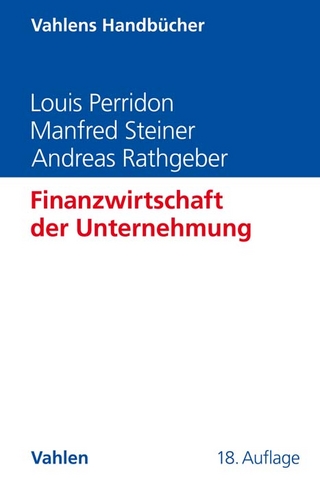
Economic Literacy and Money Illusion
An Experimental Perspective
Seiten
2017
Routledge (Verlag)
978-1-138-23557-1 (ISBN)
Routledge (Verlag)
978-1-138-23557-1 (ISBN)
Money illusion has long been over-looked in explanations of business cycles. However, with increased questions over the basis of the rational model, money illusion has been attracting renewed interest. This book follows the latest research and asks whether the acquisition of economic education can help to weaken the effects of money illusion.
The concept of money illusion, a recently resurrected phenomenon of behavioral economics, is a real fact of economic life, the potential role of which should no longer be dismissed. Despite money illusion being utterly suppressed by mainstream economists, small deviations from rationality, together with trends in behavioral economics, alleviate the denial of money illusion induced by the rational expectations revolution. This book argues that money illusion seems to be a ubiquitous phenomenon, affecting various areas such as financial markets, housing markets, labor markets, consumption-saving decisions, and even development at the aggregate level induced by coordination issues. Furthermore, in light of the educational efforts of central banks and other institutions, it is worth considering whether solid economic training would provide guidance for the public regarding their decision-making and thereby alleviate the effects of money illusion. The emerging field of experimental economics provides a unique opportunity for us to verify the presence of money illusion. Specifically, attention is devoted to the experimental investigation of reduction in the direct and indirect effects of money illusion with respect to the level of economic literacy acquired through economic education.
Economic Literacy and Money Illusion will be of interest to the general audience and to those who are interested in behavioral economics, economics education, and experimental economics, as well as to policy makers and institutions. Last but not least, it will help develop students’ interest in alternative economic theories.
NB. The research and writing of this book was made possible with the support of the University of Economics, Prague, Faculty of Economics, Department of Economics.
The concept of money illusion, a recently resurrected phenomenon of behavioral economics, is a real fact of economic life, the potential role of which should no longer be dismissed. Despite money illusion being utterly suppressed by mainstream economists, small deviations from rationality, together with trends in behavioral economics, alleviate the denial of money illusion induced by the rational expectations revolution. This book argues that money illusion seems to be a ubiquitous phenomenon, affecting various areas such as financial markets, housing markets, labor markets, consumption-saving decisions, and even development at the aggregate level induced by coordination issues. Furthermore, in light of the educational efforts of central banks and other institutions, it is worth considering whether solid economic training would provide guidance for the public regarding their decision-making and thereby alleviate the effects of money illusion. The emerging field of experimental economics provides a unique opportunity for us to verify the presence of money illusion. Specifically, attention is devoted to the experimental investigation of reduction in the direct and indirect effects of money illusion with respect to the level of economic literacy acquired through economic education.
Economic Literacy and Money Illusion will be of interest to the general audience and to those who are interested in behavioral economics, economics education, and experimental economics, as well as to policy makers and institutions. Last but not least, it will help develop students’ interest in alternative economic theories.
NB. The research and writing of this book was made possible with the support of the University of Economics, Prague, Faculty of Economics, Department of Economics.
Helena Chytilova is Assistant Professor at the University of Economics, Faculty of Economics and Charles University, Faculty of Law, Prague, Czech Republic.
List of figures
List of tables
Introduction
1 Early theorizing about money illusion
2 Rejection of money illusion
3 Renewal of interest in money illusion
4 The money illusion and its applications
5 Economic literacy and money illusion
6 Economic literacy and money illusion: An experimental approach
7 Experimental results
Index
| Erscheinungsdatum | 11.08.2017 |
|---|---|
| Reihe/Serie | Routledge Advances in Experimental and Computable Economics |
| Zusatzinfo | 8 Tables, black and white; 12 Line drawings, black and white; 12 Illustrations, black and white |
| Verlagsort | London |
| Sprache | englisch |
| Maße | 156 x 234 mm |
| Gewicht | 408 g |
| Themenwelt | Wirtschaft ► Allgemeines / Lexika |
| Wirtschaft ► Betriebswirtschaft / Management ► Finanzierung | |
| Betriebswirtschaft / Management ► Spezielle Betriebswirtschaftslehre ► Bankbetriebslehre | |
| Wirtschaft ► Volkswirtschaftslehre ► Makroökonomie | |
| Wirtschaft ► Volkswirtschaftslehre ► Mikroökonomie | |
| ISBN-10 | 1-138-23557-1 / 1138235571 |
| ISBN-13 | 978-1-138-23557-1 / 9781138235571 |
| Zustand | Neuware |
| Informationen gemäß Produktsicherheitsverordnung (GPSR) | |
| Haben Sie eine Frage zum Produkt? |
Mehr entdecken
aus dem Bereich
aus dem Bereich
warum unser Geld stirbt und wie Sie davon profitieren
Buch | Hardcover (2024)
FinanzBuch (Verlag)
CHF 41,95
Erinnerungen des Chefökonomen
Buch | Hardcover (2024)
Vahlen (Verlag)
CHF 34,85


